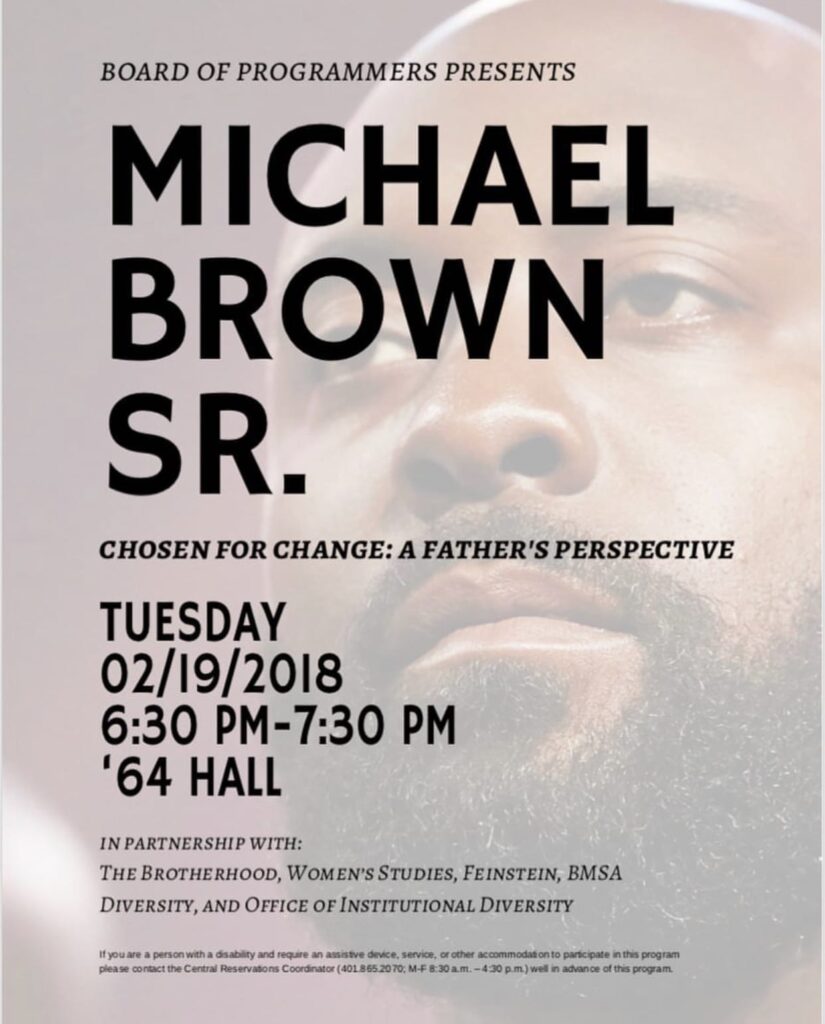by The Cowl Editor on February 28, 2019
Opinion

by Savannah Plaisted ’21
Opinion Staff
On Feb. 19, Michael Brown, Sr., looked out at the Providence College community with a 1,000-yard stare as he described the pain and suffering he felt after his unarmed son was murdered by a white police officer in Ferguson, Missouri five years ago.
The shocked reactions coming from the white members of the audience illuminated the necessity of further education about racial relations on campus. The means by which the College should be taking on this problem are alterations of the curriculum, newfound means of dialogue, extracurriculars, or even a day of campus-wide discussion.
The College experienced a wake up call last year when a Snapchat was taken of a student dressed up for Halloween as a rapper. Another student, who took the photo, added a caption with the use of the “n” word without the other student’s knowledge.
The administration did take action and had the students involved speak in a public forum, which also gave offended students the ability to voice their feelings on the matter. However, the administration’s reaction ended there.
While it is true that this Halloween the College required Resident Assistants to pass out information about what is appropriate versus what is not appropriate in terms of costume choices, there have not been enough widespread, long-term resolutions put into place as a result of such an offensive occurrence.
One way to facilitate these difficult conversations could be through the core curriculum. While PC’s core curriculum does require the diversity proficiency to be fulfilled, this does not mean that students are being specifically educated about differences in race.
Therefore, the Development of Western Civilization curriculum is the one area in which PC could change to better educate students and create dialogue on racial relations. DWC professors should ensure that the texts being taught in class are not written only by straight, white men and bring the curriculum further into history to provide chronicles of civil rights movements outside the U.S.
Another way to move forward could be to create a day of discussion regarding these types of issues. Dr. David Ragland, of the Truth Telling project of Ferguson, spoke after Michael Brown, Sr. about the need for these kinds of discussions. He explained it best with the sentiment, “Silence aids white supremacy.” By continuing to remain silent and failing to strongly advocate for a more inclusive campus, PC will continue to maintain its ranking of first place in “Colleges with Little Race/Class Interaction,” according to the Princeton Review.
The administration must take on an empowered initiative to make this necessary dialogue a reality by means of establishing a day (possibly in correlation with the Martin Luther King, Jr. Convocation) to discuss how destructive discrepancies among various races are to society.
Given the fact that PC began its history as an all- male, primarily white school, it has come a long way in terms of altering the demographics it represents; however, there is also more progress to be made.
To give more of an idea about why PC needs this education as badly as it does, one can look to what Michael Brown, Sr.’s presence meant on campus. Students who might have had no idea who Michael Brown, Jr. was now understand what his death meant for racial relations in the U.S., specifically in terms of how many major cities erupted in riots afterwards.
While discussing the ideas behind the establishment of the Black Lives Matter movement, Ragland referred to it as “challenging silence.” That type of challenge is exactly what the PC community needs to take on, and can do so by providing a better education to its students on the types of discrepancies that exist in the United States, and on a smaller scale, in Providence.
We must continue to ask ourselves what we can do to change the direction of racial relations on campus.
Comments are closed.
Supremacy?
Privlege?
Both?